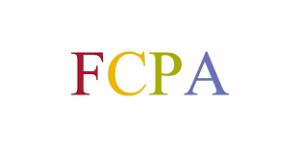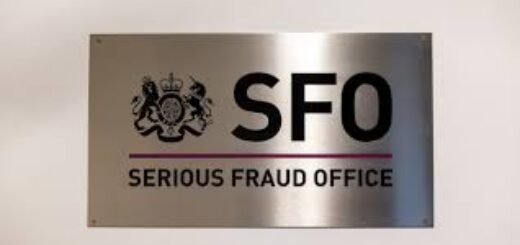The FCPA Pilot Program Disciplinary Standards (Part II of II)
 Returning to the FCPA Pilot Project requirements for timely and appropriate remediation, the Justice Department added three new elements, one of which reinforces the CCO “independence” requirement. The two other elements for an effective ethics and compliance program focus on the qualifications and compensation of compliance officers.
Returning to the FCPA Pilot Project requirements for timely and appropriate remediation, the Justice Department added three new elements, one of which reinforces the CCO “independence” requirement. The two other elements for an effective ethics and compliance program focus on the qualifications and compensation of compliance officers.
First, with respect to the structure of the company’s compliance program, the Justice Department listed the reporting structure of compliance personnel as a separate factor. When consider with the independence requirement, the Justice Department’s reporting factor suggests that maintaining robust reporting relationships to the business, the CEO and the board are a critical requirement for a company’s compliance program. It certainly raises questions about a structure that restricts the CCOs reporting relationship to the General Counsel.
Second, as to the qualifications and compensation of compliance staff, the Justice Department has cited two new areas for consideration: (a) the quality and experience of the compliance personnel; and (b) the compensation of compliance personnel and opportunities for advancement within the organization.
The Justice Department’s focus on qualifications and compensation for compliance personnel raises important issues that have long been ignored.
A “qualified” compliance officer should have relevant experience and professional training. As my colleague Donna Boehme has stated on numerous occasions, a compliance officer must be a “subject matter expert” when it comes to compliance. We all know that specific training for compliance officers is fairly limited (and frankly is another topic that needs to be addressed) but compliance officers need to have some experience or relevant training tailored to their specific compliance tasks.
A compliance officer’s compensation should match the importance of his/her role in the company, particularly in light of the elevated status of compliance officers and increased expectations placed on their shoulders to prevent and detect possible violations of law and the Code of Conduct. CCOs have tobe treated with the seniority and given executive titles commensurate with their experience and the company’s expectations. Career development and advancement opportunities have to include compliance staff and opportunities for business and compliance staff to switch from business to compliance functions and vice versa.
Timely and appropriate remediation for companies seeking to qualify for the FCPA Pilot Program extends beyond the implementation of an effective ethics and compliance program but requires that companies impose appropriate discipline of employees.
The Justice Department emphasized this requirement, and has been carefully administering this new approach. If you follow the specific enforcement actions, you will notice that companies have been giving out strict discipline against not only the employees that have engaged in misconduct but to other employees who were responsible for oversight of the offending employees. Additionally, the 2016 settlements reveal that offending employees and those that monitor the employees have suffered financial punishment as well, resulting in loss of raises, bonuses and other compensation.
 The Justice Department’s approach is further reflected in its “withholding” of remediation credit for companies that fail to impose such required discipline. In the Embraer case, for example, the Justice Department did not award Embraer with credit for its remediation and specifically its punishment of offending employees, because Embraer failed to discipline a senior officer in the company who (at least) knew of the misconduct. The message behind this decision is clear – if you want the benefits of the FCPA Pilot Program, you have to discipline and financially punish everyone involved directly or any individuals who were in a position of supervising the offending employees.
The Justice Department’s approach is further reflected in its “withholding” of remediation credit for companies that fail to impose such required discipline. In the Embraer case, for example, the Justice Department did not award Embraer with credit for its remediation and specifically its punishment of offending employees, because Embraer failed to discipline a senior officer in the company who (at least) knew of the misconduct. The message behind this decision is clear – if you want the benefits of the FCPA Pilot Program, you have to discipline and financially punish everyone involved directly or any individuals who were in a position of supervising the offending employees.
The Justice Department’s revisiting of remediation will have a powerful influence on baseline ethics and compliance programs. Whenever the Justice Department has raised the bar, compliance practitioners understand that basic benchmarks for an effective ethics and compliance program have been lifted as well. It has been an unmistakable pattern, and CCOs understand the importance of refreshing their benchmarks and standards for assessment of their compliance program.















